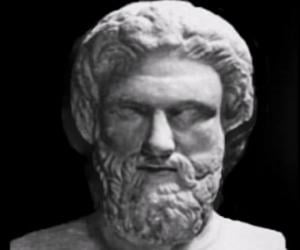The Birds by Aristophanes - Summary
The play
opens with Euelpides and Pithataerus in a wild and desolate region, each with a
bird in hand. They followed the advice of birds and regret it now that they are
lost. The characters speak directly to the audience. They are average citizens
escaping the duties and taxes of Athenian life.
Prometheus enters the city, masked for fear Zeus
will find out. He tells Pithetaerus that the gods are starving because
sacrificial smoke is not reaching them. Prometheus says Zeus will send a
messenger to negotiate and advises Pithetaerus to agree only to complete
obeisance from the gods as well as the hand in marriage of Basileia, assistant
to Zeus. Possessing her will make Pithetaerus all-powerful. Indeed, ambassadors
come in the form of Poseidon, Heracles (son of Zeus, and trollishly dumb) and
Triballus. They say that they have come in peace. Pitathaerus asks that Zeus
yield his power to him and Heracles is ready to hand over the throne.
Pithetaerus again pitches the advantages of alliance with the birds to the
embassadors. Poseidon is reluctant, and tells Heracles he would lose his
inheritance if Zeus is dethroned. Pithetaerus tells Heracles he has no
entitlement to the inheritance as he is a bastard child of Zeus', and this
convinces Heracles to also hand over Basileia, in addition to Zeus' throne. The
play ends with the wedding party going to Zeus' palace.
The men
meet Trochilus, slave-bird to Epops, formerly king Teurus, now turned Hoopoe (a
bird). They flatter him, telling him they are escaping Athens to be more like
him, a free bird devoid of debt and cares, as well as intellectually and
physically superior to men. They ask him to direct them to a city that is more
pleasant than Athens, not an aristocratic place but a place where food is free
and plentiful. Epops suggests several towns but they are not adequate to the
men. And so, Pithetaerus comes up with the idea to found a city. The city will
be built in the sky, which is the perfect location to control mankind as well
as the gods, by controlling the trafficking of sacrificial smoke, thus starving
the gods.
Epops likes
the idea of a bird city. The men wake the birds up. Different birds start
streaming in, and from the way they are described we can guess that they are
references to public figures in Athens. The birds are frightened at the
presence of the two men and decide to tear them to pieces. Epops convinces them
to hear the men out by listing the virtues of the men and flattering the birds.
Pithetaerus speaks to the birds, once again flattering them, telling them birds
are older and superior to both gods and men and that by this right they should
rule over all. He tells elaborate lies, drawing from myth, about their history
and relationship to the gods to convince them of their superiority.
The birds
decide to approach Zeus and get him to surrender to them. If Zeus won't they
will prevent the gods from reaching earth to sleep with mortal women. On the
other hand they will approach mankind and tell them they must sacrifice to
birds instead of to gods. If men don't do so the birds will destroy the crops
of men. However if they do agree the birds will provide benefits to the men,
such as protecting their crops against pests.
Epops
directs the men to eat a certain root, which turns them into birds. They begin building
the city and arranging religious ceremonies to honor the birds. Pithetaerus
sends off several tradesmen who offer their services to the city, such as a
poet, an oracle-monger, lawyer and a surveyor. The chorus promises the judges
of the competition riches if they win, bird droppings if they lose.
A messenger
comes in and announces the building of the city complete. A second messenger
announces an infiltration of the city by the goddess Iris, sent by Zeus. They
do not let her pass to tell humans to sacrifice to the gods. Afterwards a
herald comes from the humans below, telling Pithetaerus that thousands of
humans want to join the bird city and become birds. We encounter a few of them
and their reasons for wanting to be birds. Pithetaerus provides wings for them.









This comment has been removed by the author.
ReplyDelete